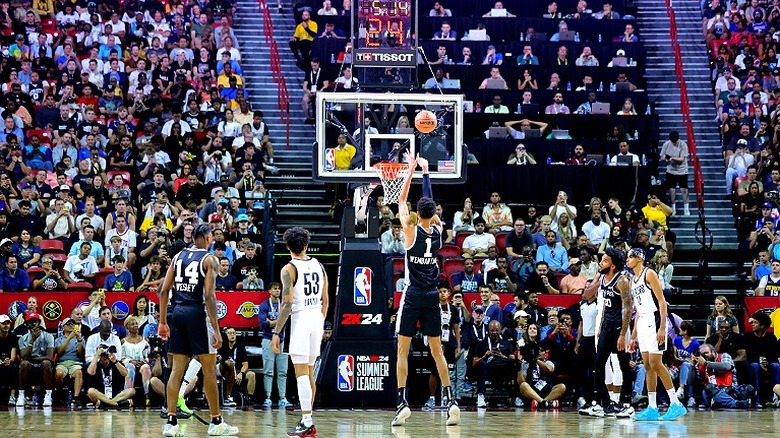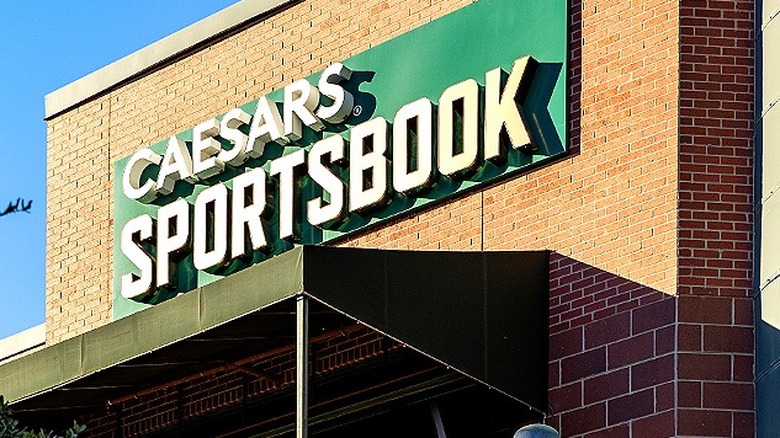Why Sportsbooks Pivoted Away From 'Risk-Free' Bets
The best things in life are free, but it does pay to be suspicious of free money — especially in the world of sports betting. In 2018, the Supreme Court struck down 1992's Professional and Amateur Sports Protection Act (PASPA), a federal law that essentially banned sports betting in every state except Nevada for over two decades. By ruling PASPA unconstitutional, the Supreme Court put the power to legalize (and regulate) sports betting in the states' hands. And, from 2018 to 2022, those hands got grabby.
The states wanted to use sports betting to impact the economy, shoring up revenue for weak state education and infrastructure budgets. Sportsbooks went to great lengths to snatch up epic amounts of market share in the new (yet ancient) industry of sports betting, seemingly sparing no expense with their promotional spend. (These are the states with the highest sports betting revenue in the U.S.)
If you had the good fortune to watch any TV in 2018, you likely also had the great displeasure of being inundated with online betting ads. While having a bookie used to be something kept on the hush, suddenly legal sportsbooks like FanDuel, BetMGM, and DraftKings screamed for attention in 2018, 2019, and 2020 with endless ads, celebrity spokespeople, and enticing "risk-free" bets. If that phrasing sounds contradictory, it's only because it certainly is. Read on to learn why sportsbooks pivoted away from "risk-free" bets in recent years — even if sports bettors haven't.
Public complaint and official bans
Virtual sportsbooks used to entice novice gamblers with "risk-free" bets. Under these promotions, new sportsbooks users were promised a risk-free first bet. If they won their bet, they'd get a payout as normal. If they lost, the sportsbook promised to return their wager, usually up to $1,000 or $1,500. While this sounds like a win-win scenario, in reality, losers got their wager returned in the form of credits, which usually carried stipulations, and lured the bettor into placing more bets. To be clear: Promotions like this still run, only now they're under new terminology and stipulations. FanDuel, for example, was the first to rename its promotion to "no-sweat" bets. (Learn how parlays work.)
Public concern over gambling addiction from predatory marketing, state regulation, and sports' leagues long-held opposition to betting contributed to the change in terminology. In 2023, the NBA even vowed to ban any sportsbook ads that referenced "risk-free" betting from the association's platforms, and promised to use its influence to get broadcasters of NBA games to follow suit.
"We believe it's a problematic term from a responsible gaming and a problem gaming standpoint," Scott Kaufman-Ross, NBA's senior vice president overseeing gaming, told Sports Business Journal in 2023. "It's important that we be clear with our fans that sports betting carries inherent risk." At the state level, regulators seemed to agree, with many states, including Ohio, Massachusetts, and Maine, taking up regulations against "risk-free" ads, as well as fines for sportsbooks that defied the rules.
Sportsbooks pivot to maintain market share
There's an old saying in gambling: The house always wins. This is still the case when it comes to sportsbooks. A large reason sportsbooks have moved away from the "risk-free" game is because sportsbooks are no longer focused on luring new users, but maintaining them. Maintenance doesn't take loss-leader-style promotional spend. For example, in 2022, Caesars, a major sportsbook, cut billions of dollars from its planned advertising spend, per The Washington Post.
Part of maintaining market share in sports betting is responding to the backlash against too-good-to- be-true terminology. By changing "risk-free," sportsbooks can avoid litigation. Reuters cites multiple class-action lawsuits already brought against the sportsbooks; lobbyists and trade associations seem to take the changes in stride. "We always knew all of this would have to evolve," Casey Cark, senior vice president at the American Gaming Association, told Sports Business Journal. "Once we got into operation at scale, we would have to look at what was working and what wasn't and how to ensure we're creating a viable and sustainable market."
But the largely unregulated industry and its promotional evolution still don't sit easy with many, name changes notwithstanding. Anthony Cabot, a distinguished fellow in gaming law at UNLV, told the Post there's a need today for an official "independent regulatory body overseeing gaming in a jurisdiction ... not the profit-motivated engine of the government." Only time (and lawsuits) will tell how the sports betting industry and those who partake in it handle the high price of free money.


